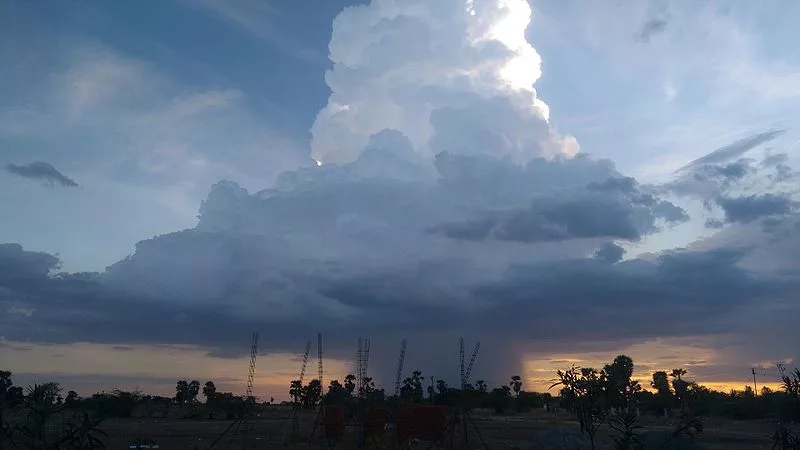FALCON POWERS – Researchers at the University of Washington have conducted an experiment to slow down climate change by spraying seawater on clouds. The salt particles help form small, shiny water droplets in the clouds, which reflect sunlight back into space, preventing the warming of the planet.
The European Union’s climate monitoring service reported that the past 12 months were the warmest on record globally, with the average temperature exceeding the pre-industrial average by about 1.63 degrees Celsius. On World Environment Day yesterday, United Nations Secretary-General Antonio Guterres called for urgent action to avoid a “climate hell.”
According to the Washington Post, the researchers at the University of Washington conducted the experiment using a saltwater spray device mounted on the deck of an aircraft carrier.

Experts say the test poses no health risk to the public. Gernot Wagner, a climate expert at Columbia University who is not involved in the experiment, said “Frankly, it was a harmless test.”
However, some environmentalists argue that these ideas can have serious and unexpected side effects, and they distract from the most reliable way to avoid climate change, which is to reduce carbon emissions.
The experiment focused on reflecting sunlight back into space and increasing the water droplets in clouds, with the hope of buying more time to reduce carbon emissions. The researchers found that spraying salt particles into the air helps the existing moisture in the air form water droplets.
Experts note that this process occurs naturally when ocean winds blow sea foam into the air, contributing to cloud formation, and they say they can enhance this process to lower temperatures.
The United Nations World Meteorological Organization says there is about an 80% chance of temporarily exceeding 1.5 degrees Celsius of warming within the next five years, up from a 66% chance last year.
With time running out to reverse the course, Guterres urged a 30% global reduction in fossil fuel production and use by 2030, saying “We need an exit ramp from the highway to climate hell.”


